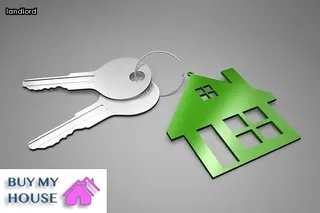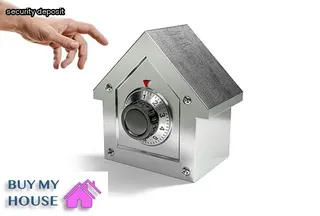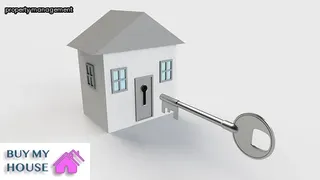Normal wear and tear is a term used to describe the expected deterioration of a rental property over time when it is occupied by tenants. In Pennsylvania, landlords and tenants have certain rights and responsibilities related to the damage that can occur during tenancy.
Normal wear and tear usually includes minor damages such as scratches on walls, worn carpeting, fading paint, etc., which are expected over the course of a leasing period.
Tenants should not be held liable for such general wear and tear that occurs with regular use of the rented unit. Other more significant damages beyond normal wear and tear may be considered tenant responsibility, however, if they were caused by negligence or misuse of the property.
Landlords must provide written notice of any damages deemed to be tenant responsibility prior to beginning repairs or seeking payment from the tenant. It is important for both parties to understand their rights and responsibilities in order for disputes about property damage to be resolved fairly.

The key distinction between damage and normal wear and tear is that the former is caused by a tenant's actions or negligence, while the latter is simply the result of everyday use. Damage occurs when a tenant does something to the property that deteriorates its condition.
For example, if a tenant breaks a window, paints graffiti on walls, or tears out carpeting, these would all be considered acts of damage that the tenant is responsible for repairing. On the other hand, normal wear and tear refers to changes in condition due to everyday use.
This could include minor scuffs on surfaces from furniture moving around or faded paint from aging. Normal wear and tear does not require tenants to repair it as it accumulates over time with regular use of the space.
In Pennsylvania, landlords are required to keep their properties in good condition and may issue deductions from security deposits for damages beyond what would be considered normal wear and tear. It is important for tenants to understand the difference between damage and normal wear and tear so they can protect their rights as renters in Pennsylvania.
Tenants in Pennsylvania have certain rights and responsibilities when it comes to damage that occurs to the rental property they occupy. Most of the time, normal wear and tear is expected as part of regular use and tenants are not responsible for these types of damages.
However, understanding what constitutes normal wear and tear can be confusing for tenants. Practical examples include minor surface scratches on floors due to furniture being moved, worn carpets from regular foot traffic, or a discolored sink from long-term usage.
Paint fading over time is another common example of normal wear and tear, as well as small cracks in walls from regular temperature changes that occur throughout the year. Toilet seats may also become loose after a few years of use or door hinges may become squeaky due to age.
Though these issues may be annoying for tenants, they should understand that it is simply natural aging of materials and not caused by any intentional misuse or negligence on their part.

When it comes to tenants in Pennsylvania, understanding their rights and responsibilities concerning property damage is essential. To help prevent wear and tear of the property, tenants should clean and maintain the property regularly.
This includes vacuuming carpets, mopping floors, wiping down counters or other surfaces, dusting shelves and furniture, cleaning windows and mirrors, clearing out the drain traps in sinks and tubs, replacing air filters as necessary, and disposing of garbage on a regular basis. Tenants should also check for any possible leaks or problems with appliances such as stoves or dishwashers.
If there are any issues that need to be addressed they should be reported to the landlord immediately. Additionally, tenants should avoid activities like smoking inside the property which can cause damage to walls or ceilings.
Finally tenants should look over their lease before signing it so that they know what is expected of them when it comes to keeping up the property. Taking these steps will help ensure that both tenant and landlord have a successful experience when it comes to renting in Pennsylvania.
Normal wear and tear is an expected part of any tenancy, and understanding what it is is essential to keep a good relationship between tenant and landlord. Normal wear and tear can include minor cosmetic damage from everyday use, such as scratches on floors or walls caused by furniture being moved around.
It also includes general aging of the property, such as fading paint or peeling wallpaper. Generally speaking, normal wear and tear does not require the tenant to pay for the damage, as it is expected over time.
However, if a tenant was to cause excessive damage – such as breaking furniture or causing major stains – these would not be considered normal wear and tear, so the tenant would be responsible for either repairing or replacing them. Tenants in Pennsylvania should understand that they are responsible for taking reasonable care of their rental property while they live there, but normal wear and tear should not be taken out of their security deposit at the end of their tenancy.

In Pennsylvania, tenants and landlords share certain rights and responsibilities when it comes to the maintenance of rental properties. One of the most important obligations for tenants is to take care of the rental unit and any damage caused by their negligence can result in a tenant being held financially responsible.
To avoid this outcome, tenants should be aware of strategies that can help minimize property damage from occurring. First, tenants should ensure they use their best judgement when it comes to home improvement projects; if any modifications are made to the unit, tenants should always consult with their landlord first.
Additionally, for larger renovations such as painting or flooring installations, tenants should hire a professional who has experience working in rental units. Furthermore, regular maintenance is key: addressing small issues before they become major problems will save time and money in the long run.
Lastly, tenant should be mindful of how they are using electricity and water: excessive usage could lead to costly repairs down the line. By following these strategies, tenants can protect themselves from potential financial damages while also protecting the condition of their rental unit.
If a tenant has sued you for the security deposit in Pennsylvania, there are certain tactics that can be used to defend yourself in court. It is important to know your rights and responsibilities as a landlord so that you can properly assess the situation and prepare for court.
Talk to an attorney who specializes in tenant law in Pennsylvania and get advice on how best to proceed. Gather evidence that supports your case such as photographs of the property before and after the tenant moved out, any receipts or invoices showing repairs or cleaning done, and any signed documents related to the rental agreement.
Additionally, have witnesses ready who can testify on your behalf if necessary. Understand both sides of the dispute – what damages were caused by the tenant, which could be deducted from the security deposit; and what damages were due to normal wear and tear, which should not be charged against the security deposit.
Maintain detailed records throughout the entire process so that you have all information available when needed. Lastly, present a clear argument based on facts rather than emotion when speaking in court.

When renting a property, tenants in Pennsylvania should be aware of their rights and responsibilities regarding returning deposits. Tenants must understand that landlords are obligated to return the security deposit within 30 days of the end of the lease unless there is documented damage to the property.
Tenants are responsible for all damages made to the leased property beyond normal wear and tear and must pay for any repairs or replacements before receiving a refund of their security deposit. If a tenant disagrees with the amount deducted from their deposit, they may request an itemized list from their landlord outlining any deductions taken from the total amount of their deposit.
Furthermore, if a landlord does not return the full amount, or does not respond to requests for an itemized list, tenants can take legal action through small claims court in order to recover all or part of their deposit.
When it comes to moving out of a rental property, it is important to understand the tenant rights and responsibilities regarding property damage in Pennsylvania. When you move out, it is essential to write an effective move-out letter that outlines the condition of the property when you moved in and when you moved out.
This will ensure that any damages are properly noted before the landlord inspects and assesses any charges for repair or replacement of damaged items. Be sure to include all details in your move-out letter, such as date of occupancy and date of vacancy, as well as detailed descriptions of any damages found.
Additionally, if applicable, be sure to include photographs or other proof that can serve as evidence if needed. Writing an effective move-out letter is essential for protecting your rights when vacating a rental property in Pennsylvania and understanding tenant rights and responsibilities regarding property damage.

Conducting an apartment inspection upon tenant move-out is an important part of understanding tenant rights & responsibilities in Pennsylvania regarding property damage. Tenants should be sure to document any pre-existing damage to the apartment that has been noted by the landlord, as well as any damage caused by the tenant during their stay.
During the move-out inspection, all parties should be present, and a written record should be kept of any damages found. If there is disagreement between the landlord and tenant about which party is responsible for certain damages, a neutral third party can be called in to help resolve the dispute.
It is also important for tenants to note that Pennsylvania law requires landlords to provide a written list of all items that are included in their rental agreement, so they can compare this list against the condition of their unit when they are moving out. By following these steps, tenants can ensure that they are not held liable for property damages that occurred prior to or during their tenancy.
In Pennsylvania, it is important for tenants to understand their rights and responsibilities when it comes to property damage or unpaid rent. One of the primary responsibilities of a tenant is to provide an itemized statement of deductions for damages or unpaid rent if they are seeking reimbursement from their landlord.
In order to prepare such a statement, tenants should take detailed photos and videos of the damaged property as evidence of the condition before and after any repairs were made. They should also document any conversations that occurred between themselves and their landlord about the damage, including emails, text messages, or phone calls.
Finally, tenants should create an itemized list that outlines each repair completed along with the estimated cost for each repair. By taking these steps, tenants can be better prepared to receive reimbursements from their landlords in the event of property damage or unpaid rent.

When it comes to tenant rights and responsibilities in Pennsylvania, understanding the law around security deposit disputes is key. If a tenant is facing a lawsuit over the security deposit, they must prepare appropriately.
Tenants should start by familiarizing themselves with their lease agreement to ensure that they have met all of their legal obligations. In addition, tenants should review their state’s landlord-tenant laws and check if there are any local ordinances that apply to the situation.
It may also be beneficial for the tenant to collect evidence of any repairs or improvements made during their stay at the property, since this could help prove that damages were in place before they moved in. Furthermore, tenants need to consider possible defenses for their case, such as proving that any damage was caused by normal wear and tear or unexpected circumstances beyond their control.
Lastly, it is important for tenants to be aware of the statute of limitations set by the state since this will determine how long after an issue arises that a lawsuit can be filed.
When it comes to dealing with shortfalls in the security deposit amount when covering damages or unpaid rent in Pennsylvania, tenants have certain rights and responsibilities that they need to understand. In Pennsylvania, landlords are not allowed to deduct from a tenant's security deposit for normal wear and tear, meaning that any damage done needs to be beyond what is considered normal for the property.
Tenants are responsible for returning the property in the same condition as it was at the start of their tenancy, minus the effects of ordinary wear and tear. Additionally, if an issue arises where a tenant has caused more damage than is covered by the security deposit amount or is unable to pay all of the owed rent, then they may be held liable for any additional costs.
Tenants should also be aware that landlords are not obligated to return security deposits within 30 days of termination of tenancy. If this happens, tenants have the right to take legal action against their landlord.
Understanding these tenant rights and responsibilities can help ensure that both parties are able to fairly address any issues or disputes regarding rental properties in Pennsylvania.

As a tenant in Pennsylvania, it is important to be aware of your legal rights and responsibilities regarding property damage. Tenants should understand that they are responsible for any damages caused by them or their guests.
This includes any damages to the building, fixtures, appliances, or furniture that were supplied by the landlord. Tenants must also take reasonable steps to prevent damage from occurring due to negligence or carelessness.
Landlords have a responsibility to keep their rental units safe and habitable. In cases where the tenant is not at fault for the damage, landlords are required to repair any damages within a reasonable time frame.
If there is a dispute between the tenant and landlord as to who is responsible for the damage, tenants in Pennsylvania have various avenues available to resolve the issue. Tenants may choose to contact an attorney or file a complaint with their local housing authority if they feel their rights have been violated.
Knowing your rights as a tenant in regards to property damage can help protect you from costly repairs and help ensure your safety while living in your rental unit.
It is important for both tenants and landlords to understand tenant rights & responsibilities in Pennsylvania regarding property damage. Estimating the cost of repairs from tenant damage to a rental property can be tricky.
Tenants need to be aware that they are financially responsible for any damages caused by them or their guests during their tenancy, including any costs associated with repairing the damage. Landlords should consider the type and extent of the damage, as well as replacement costs and labor when calculating the cost of repairs.
For example, a small hole in a wall might require patching and painting, while larger damages could require replacing entire walls. Other factors such as materials needed for repair or replacement, special equipment rental costs, or disposal fees should also be taken into account when estimating repair costs.
Tenants can help minimize repair costs by informing their landlord of any issues quickly, so that potential damages do not worsen over time.

Landlords in Pennsylvania are required to abide by laws governing refunds for security deposits after move-out. These laws can vary from state to state, so it is important for tenants to understand their rights and responsibilities regarding property damage when it comes to their security deposit.
Landlords should be aware of potential liability after a tenant moves out, and best practices include documenting evidence of any property damage caused by the tenant. Legal requirements allow landlords to retain part or all of the security deposit if property is damaged beyond normal wear and tear.
Tenants who may need more information on small claims court procedures and security deposits can benefit from researching online resources or talking with a lawyer.
Yes, a landlord can sue a tenant for damages in Pennsylvania. Tenants who cause damage to a rental property are legally responsible for repairing or replacing the damaged property.
Tenant responsibilities include taking reasonable care of the rental unit and all its contents, as well as notifying the landlord if any damage does occur. In Pennsylvania, landlords are able to pursue legal action to recover costs associated with damages done by their tenants.
If a tenant causes damage to the rental property, the landlord may seek reimbursement from them through court proceedings, such as small claims court. Landlords must also provide notice and an opportunity for the tenant to repair or replace any damaged items before pursuing legal action.
Tenants should familiarize themselves with local laws and regulations regarding their rights and responsibilities when it comes to property damage in order to avoid being sued by their landlord.

In Pennsylvania, landlords have certain responsibilities and duties to mitigate damages to their tenant’s property. Tenants have the right to expect that their landlord will take reasonable steps to reduce or prevent further damage in the event of a problem.
Landlords should be aware of the laws in Pennsylvania which outline their legal obligations for mitigating damages caused by a tenant’s negligence or abuse of the property. Landlords may also need to make sure that they are following any local ordinances which may mandate additional measures for protecting a tenant’s property from damage.
In addition, if a tenant has caused unrecoverable damages to the rental unit, landlords must attempt to minimize those losses by repairing or replacing damaged items as quickly as possible. Furthermore, landlords must remain vigilant in ensuring that any required repairs are done promptly and correctly so that tenants do not suffer any additional losses due to further damage or delays.
Ultimately, it is important for both tenants and landlords alike to be familiar with their rights and responsibilities when it comes to mitigating property damage in Pennsylvania.
Yes, a landlord in Pennsylvania can make a tenant pay for repairs. According to the Pennsylvania Landlord-Tenant Act of 1951, tenants are responsible for taking care of necessary repairs and maintenance in their rental units, with the exception of damages caused by normal wear and tear.
That means if a tenant causes damage to the property beyond normal use and wear, they may be liable to pay for repair costs. This includes damages caused by intentional or negligent acts of the tenant or their guests.
To avoid any potential issues, it is important for tenants to understand their rights and responsibilities when it comes to property damage in Pennsylvania. Tenants should also be aware that landlords have the right to deduct unpaid repair costs from a tenant's security deposit upon move-out.
Therefore, it is crucial that tenants take all necessary steps to protect their security deposit from any damage-related deductions.
In Pennsylvania, a landlord can deduct from a security deposit for any damage to the rental property that exceeds normal wear and tear. The amount deducted must be reasonable and necessary to repair or replace the damaged property.
Landlords are not allowed to withhold money due to cleaning costs or other expenses related to the tenant's move-out. However, it is important for tenants to understand their rights and responsibilities regarding property damage in order to protect their security deposit.
Tenants should ensure that they take pictures of the condition of the rental unit before moving in and upon move out so they have documented evidence of any damages that occurred during their tenancy. Additionally, tenants should review their lease agreement or consult with an attorney for further information about what kind of damages may be covered by their security deposit.
By understanding tenant rights and responsibilities, Pennsylvania renters can protect their security deposits from unnecessary deductions.
A: In Pennsylvania, Property Managers may sue tenants for actual damages in Small Claims Court. Such damages might include damage to the premises caused by the tenant, or other losses that a tenant has caused.
A: Property Managers in Pennsylvania may advertise tenant damage to property through any lawful means, such as posting signs on the property or using other public media, provided that these advertisements are factual and do not contain false or misleading information. Additionally, the advertisement must include an opportunity for tenants to respond with evidence or testimony regarding the alleged damages.

A: Tenants in Pennsylvania are responsible for any damages they cause to their rental property and may be liable to the landlord or property manager for the cost of repairs. Landlords are also allowed to seek recovery of actual damages through Small Claims Court.
A: Landlords in Pennsylvania can protect themselves from tenant damage by requiring tenants to pay a security deposit or escrow funds, and by familiarizing themselves with relevant state statutes. In addition, landlords should take steps to mitigate risks such as regular inspections of bathrooms and other areas for signs of damage.
A: Tenants in Pennsylvania are responsible for any damages they cause beyond normal wear and tear. They should inform their Property Manager of any issues as soon as possible and make arrangements to repair or replace any damaged property. In Small Claims Cases, Property Managers may be able to seek actual damages from tenants for property damage.
A: Tenants in Pennsylvania have the right to dispute Property Damage charges levied against them by their landlord or property manager. Tenants can challenge the amount being charged and/or the cause of the damage by bringing a Small Claims case against the landlord or property manager.